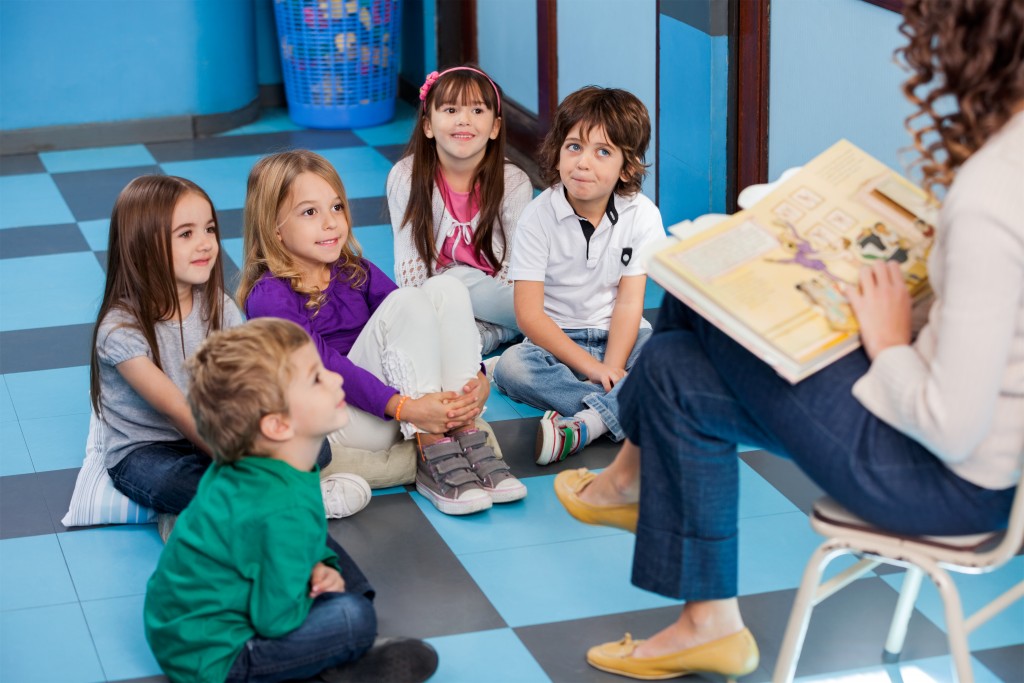We all know that mindfulness is beneficial to our health. Instead of surrendering to our gut impulses, mindfulness helps us be aware of our parenthood, adopting a wise response.
Mindfulness is also beneficial to our children. A growing body of evidence suggests that mindfulness can help youngsters improve their ability to pay attention, simmer down when agitated, and make better choices. In a nutshell, it aids in emotional balance and mental concentration. Is it essential to ask whether you want the same for your children?
Meditation in Children
The goal of teaching meditation to kids is to equip them with skills for developing their consciousness of their internal and external experiences, understanding how emotions emerge in their body, recognizing when their focus has strayed, and providing tools for control.
So, where do we begin? How can we instill these values in our little ones? Let’s start with the basics.
Practice What You Preach
You’d have a hard time training your kids if you’ve not experienced it firsthand. To introduce mindfulness to your little ones, you must practice it yourself. You can begin gradually by meditating for five to ten minutes every day.
Look for methods to integrate mindfulness into your routine. Don’t be intimidated by this stage; you’re probably already doing a lot of mindfulness activities beforehand.
Establish Reasonable Expectations
Are you hoping that mindfulness would decrease tantrums? Or perhaps it can quiet down your hyperactive child? If that’s the case, you are more likely to feel dissatisfied. While being calm and quiet are pleasant byproducts of mindfulness, these are not the end goal.
The goal of teaching mindfulness to kids is to provide them with skills that will allow them to enhance their awareness of their internal and external experiences, reflect on their thoughts, and grasp how emotions can manifest through their bodies. It is not a cure for all, and it would not eliminate what is simply an innate child behavior.
Teach Motion Awareness
Encourage your kid to be more conscious of their body and movements. It’s best to enforce their imagination, like walking on thin ice and going carefully and slowly around the room. Pretending to be a commentator will help you become more conscious of their motions.
You might devise several additional activities to educate your children to walk slowly and deliberately. Toss a balloon and tell them it’s a delicate egg they must carefully preserve without shattering it.
Monitor Specific Activities

It’s best to encourage your child to write about their everyday activities or allow them to speak to you about them so that you can record them. Choose a particular time of day, such as their morning ritual or as they come home from their preschool, and ask them to recollect what they did.
They could provide incomplete information for the first few times they try this practice but not correct them or probe further specifics. Instead, tell them you’ll do it again the next day. With repetition, kids should be encouraged to go through their day in more detail.
Sharpen their Smelling Senses
Scents are an excellent tool for helping children become more conscious of the present moment. Giving them something scented, like a flower or a citrus fruit, is a simple method to stimulate their sense of smell.
Invite them to shut their eyes and focus on their sense of smell. Spend a couple of minutes focusing just on the fragrance. Afterward, ask them a few basic questions about how they feel about each scent.
Count Their Breathing
Teach your child to listen to their breathing as a simple technique to calm their thoughts. Cover their eyes and count their breaths together with them. Teach them to come back and count when their thoughts stray.
Their respiration should not be affected by the workout. Instead, it’s about assisting people in being more conscious of their breathing and how their mind and body feel when they are attentive.
Yoga
Yoga is an excellent approach to raising your child’s understanding of the relationship between their thoughts and their body. Certain poses for kids might help them become even more aware.
Enroll your child in a Yoga class or seek kid-friendly tapes to practice at home. You and your partner can also practice Yoga together and integrate it into your everyday routine. Like other meditative activities, Yoga can help your kid develop coping abilities.
The more a child can be aware of the present moment, the better their self-regulation will be. It’s also crucial to keep in mind that concentration is something you should practice regularly. Spend time each day practicing mindfulness techniques with your kid. When you make a concerted effort in your life, your kid will understand how vital it is to live in the present moment.


